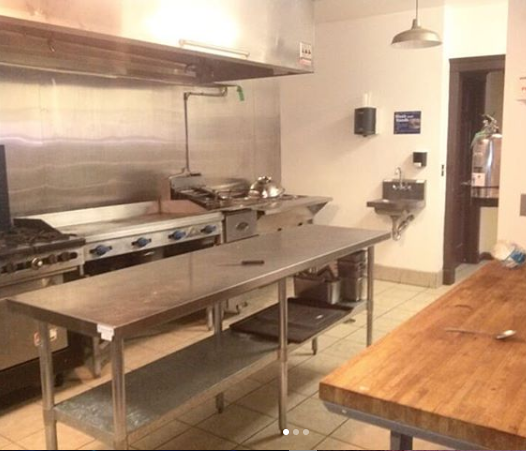In accordance with our interest in alternative economic models, MARSH is organizing our licensed kitchen/diner space as a workers-owned cooperative. Chefs, cooks, and restaurant support staff are invited to attend our first organizing meeting on May 11 at 7 p.m. at 6917 S. Broadway, St. Louis, MO.
What is a cooperative?
A cooperative is officially defined as, “An autonomous association of persons united voluntarily to meet their common economic, social, and cultural needs and aspirations through a jointly-owned and democratically-controlled enterprise.”
The International Co-operative Alliance has established seven principles that serve to further that definition. They are as follows (with my editing for brevity and clarity):
Voluntary and Open Membership – Anybody willing and able to accept the full responsibilities of participation is welcome.
Democratic Member Control – Participation involves policy-setting and decision-making. Representatives may be selected but all members have voting rights.
Member Economic Participation – Members contribute equitably to, and democratically control, the capital of their cooperative. At least part of that capital is usually the common property of the cooperative.
Autonomy and Independence – Because cooperatives are controlled by their members, they do not answer to any larger governmental (other than following the law) or corporate entities though they can cooperate with other organizations or raise capital from external sources if such arrangements are approved by the participants.
Education, Training, and Information – Cooperative resources are used, whenever possible, to provide information, education, and training within the organization and to others. Simply, knowledge resources, as with all other matters under cooperative control, are generative rather than extractive.
Cooperation – This basically speaks for itself but is intentionally applied among participants, between cooperative organizations, and as a model of personal and social interaction.
Concern for Community – While all policies will be approved by participants, this principle is generally applied as a commitment to sustainability as in practices that pursue ecological, economic, and social equity.

Why organize as a cooperative?
Cooperatives reframe “economies” beyond capitalistic models to replace/subvert traditional inequitable and abusive paradigms. Advantages include:
- Benefits accede to workers as owners.
- Bulk buying to lower prices.
- Both expenses and profits shared equitably.
- Collaboration for labor distribution, problem solving, economic pressure, mutuality.
- Mutual focus on community and sustainability principles rather than on profit and competition.
- Creative idea generation.
- Expanded network of contacts.
- Learning opportunity for potential, new, and existing participants.
- Just, alternative democratic and economic model.
- Voluntary and self-governing.
- Eliminates discriminatory hiring, compensation, and staff treatment practices.
- Organization of enterprise meets the needs of its worker-owners, not shareholders.
- Locally owned and operated. No corporate headquarters in another state or country and both purchases and sales are generally conducted locally.
How will the MARSH Diner Cooperative work?
The three key aspects of cooperatives are joint ownership, democratic control, and cooperative distribution of earnings. Participants purchase goods and services together and are the owners of the enterprise in that they make decisions democratically, elect their own leadership, and share in benefits/profits. Participants can be consumers or workers or both.
Spark for the Arts, Inc. is a 501(c)3 not-for-profit doing business as MARSH, and, as such, is the center of revolving activities of which the co-op is one. MARSH staff provides management for the co-op, but the co-op conducts its own internal elections, handles bulk ordering, and the cost of utilities, lease, and property taxes is taken from profits. Chefs and support staff receive compensation based on hours worked and, when possible, as a percentage of profit. A public component is incorporated whereby non-working members receive voting privileges, are eligible to make proposals, and receive benefits such as participation in bulk food distribution and discounts on meals and events.
Questions are welcome at bioculturalist@gmail.com.

Leave a comment